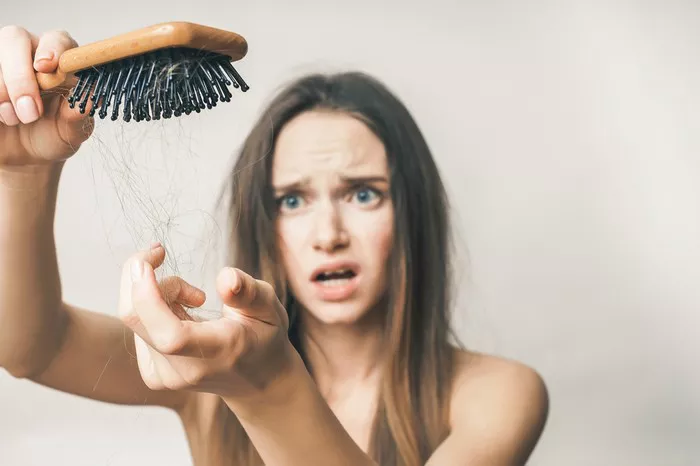Embarking on a weight loss journey is a commendable effort with numerous health benefits. However, some individuals may encounter an unexpected side effect – hair loss. While this phenomenon can be distressing, it’s essential to understand the underlying causes and explore whether the lost hair will eventually grow back. In this article, we’ll delve into the relationship between weight loss and hair loss, potential reasons behind it, and strategies to promote hair regrowth.
The Connection Between Weight Loss and Hair Loss
Hair loss related to weight loss is not uncommon and is often temporary. The scientific term for this condition is telogen effluvium, a type of hair loss characterized by a sudden and excessive shedding of hair. This occurs when the body undergoes significant stress or experiences a rapid change, such as substantial weight loss.
During periods of intense stress or dramatic weight loss, the body can enter a state of shock, redirecting energy resources away from non-essential functions, including hair growth. This shift can push a significant number of hair follicles into the resting phase, leading to increased shedding. While the exact mechanism isn’t fully understood, it is believed to be a stress response that interrupts the hair growth cycle.
Will the Hair Grow Back?
The good news is that in most cases, hair loss resulting from weight loss is reversible, and the hair will grow back. Once the body adjusts to the new weight and stress levels stabilize, the hair follicles will gradually re-enter the active growth phase. However, patience is key, as the regrowth process can take several months.
Nutritional Factors and Hair Health
Nutritional deficiencies can contribute to both weight loss and hair loss. When individuals adopt restrictive diets or undergo significant weight loss, they may inadvertently deprive their bodies of essential nutrients crucial for overall health, including hair health. Key nutrients for hair growth include vitamins A, C, D, and E, as well as biotin, iron, zinc, and omega-3 fatty acids.
If your weight loss journey involves a restrictive diet, it’s crucial to ensure you are still meeting your nutritional needs. Consider consulting with a registered dietitian to create a well-balanced eating plan that supports both your weight loss goals and overall health, including the health of your hair.
Gradual Weight Loss and Hair Maintenance
Opting for a gradual and steady approach to weight loss can help minimize the risk of associated hair loss. Rapid, extreme weight loss measures, such as crash diets or excessive calorie restrictions, can place stress on the body and increase the likelihood of telogen effluvium. Instead, focus on making sustainable lifestyle changes that promote gradual weight loss over time.
Incorporate a variety of nutrient-dense foods into your diet, ensuring you provide your body with the necessary building blocks for healthy hair. This approach not only supports your weight loss goals but also helps maintain overall well-being.
Supplements for Hair Support
In some cases, incorporating supplements may be beneficial for promoting hair regrowth. Biotin, a B-vitamin essential for hair health, is commonly recommended for individuals experiencing hair loss. However, it’s important to consult with a healthcare professional before starting any supplementation, as excessive doses of certain vitamins and minerals can have adverse effects.
Topical Treatments and Hair Care Practices
In addition to addressing internal factors, adopting a thoughtful approach to hair care can contribute to regrowth. Use gentle, nourishing shampoos and conditioners, and avoid excessive heat styling or chemical treatments that can further stress the hair.
Some individuals find success with topical treatments containing minoxidil, an FDA-approved ingredient for promoting hair growth. However, it’s crucial to consult with a healthcare professional before using any topical treatments, as they may not be suitable for everyone.
Conclusion
Experiencing hair loss during weight loss can be a temporary and reversible side effect. Understanding the connection between weight loss and hair loss, addressing nutritional factors, and adopting a gradual approach to weight loss can contribute to a healthier, more sustainable outcome. If you’re concerned about hair loss, consider consulting with a healthcare professional or a dermatologist who can provide personalized guidance and recommend appropriate interventions to support hair regrowth. Remember, with patience and a comprehensive approach, you can navigate the challenges of hair loss and emerge with a head of hair that reflects your overall well-being.


